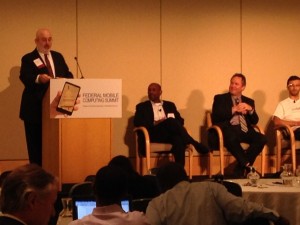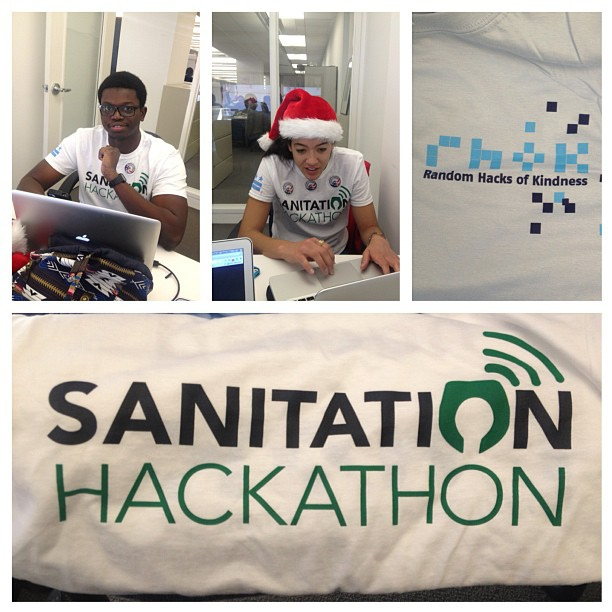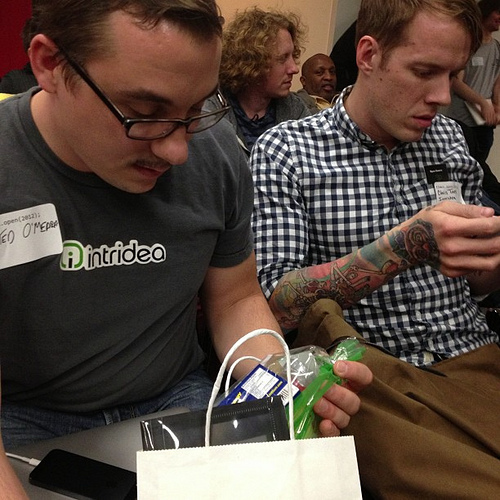Given this is my first European conference, it's challenging not to be overwhelmed by the rush brought on by being in an incredibly beautiful city like Freiburg. Cobblestone streets, medieval architecture, Schnitzel, Spaetzle, copious amounts beer and rich regional food make this tiny town easy to love and grow attached to.
As Oliver Reichenstein put it in his talk, "Being in a country that's completely foreign to you forces one to simplify the environment into abstract shapes and colors, making it easier to understand." To an extent, this simplification allows us to focus more on the experience, as the noise of understanding is relatively low. It's the experience that we take with us, not the words, the schwag, the memories— it's the physical imprint on our minds, the binding of an event to tissue. The very same that drives users to use Facebook, Twitter, Instagram and other dopamine-focused apps that rule our lives. So that's what I hope to describe to you, my experience at #smashingconf, the things that triggered my dopamine gate, those moments and ideas presented by some of the worlds best web leaders.
So let's cut to the chase; what was the most memorable event that attached itself to my brain? It's difficult to say, perhaps it was Brad Frost's talk on mobile web and his dropping a pretzel on the floor and eating it again to illustrate the 5 second rule and how it relates to download times. Or Lea Verou's live demo of CSS techniques that would put even the most experienced presenter to shame. Maybe Paul Boag's animated, inspiring, and self-reflective manifesto on client focused vs. user focused, web design and the importance of including clients in the process. Wait, it had to be Josh Brewer's fantastic presentation on his new jQuery plugin that auto-calculates the perfect line-length or measure. Nope, nope, I got it, it was Oliver Reichenstein's talk on the state of the web and the inspirational quotes I was able to relate to.
Damn, it's really hard to say. Come to think of it, maybe those small bits that I described above are it so rather than trying to recap the whole event, let's focus on a few of the things I can recall without looking through my notes.
Brad Frost, you my friend are the winner. Probably, no definitely, the youngest presenter in the group, Brad showed what he's made of by giving a kick-ass presentation on moving beyond media queries.
Principles of Adaptive Design
While he covered many important things, such as core necessities and some techniques, the thing that stuck was probably the simplest—a good mobile experience is about performance. Performance is not the size of the logo, the number of nav elements, your mobile first approach—it's making the mobile experience perform in context of mobile web — fast-as-hell. As mentioned earlier, Brad illustrated the average download time and how painful it is by dropping the pretzel he was eating and counting to 5. Think about that, one-one-thousand, two-one-thousand, three-one-thousand, four…you get the drift—it's a really long time. No user, especially those still stuck on 3G or even Edge should have to wait that long to see your logo, nav, or whatever else your focus group deems critical. So, two things to bear in mind, both of which are quotes by Brad, the next time you approach a project—
- You can't mock up performance in photoshop.
- Nav is like a good friend, there when you need them but cool enough to give you space.
As Jay-Z says "On To The Next One"—Lea Verou. First I'd like to say thanks to Lea for helping me get a lot more retweets than I usually do:
"My takeaway from @LeaVerou's talk = She's a badass and more girls should code. Make it happen ladies! #smashingconf"
Lea showing everyone what's up
Seriously, wow. That woman know's what's up. While I don't necessarily remember all the cool tricks she showed, I do remember coming away saying to myself—"Man, why don't more ladies code?!? That was awesome!" To any woman out there looking to make a dent in the tech community, follow @LeaVerou—she's a smart, talented dev, and will definitely put any experienced speaker to shame when it comes to live demos. In fact, I don't think I've ever seen someone give such a good live demo of code. Probably because it's a lil' geeky, not gonna lie, but yeah still pretty badass. I also came away feeling inspired and eager to pop open sublime text and finish this css gradient thing I've been working on—watch this space.
One thing I didn't expect was a manifesto—Paul Boag's talk on making our jobs more enjoyable by changing our outlook on clients and focusing on client focused design vs. user focused. Now I know what you're thinking, we all said the exact same thing—GTFO. But he made some great points about what we as designers/developers bring to the table when we work with clients and how we're happy to take their money but more often than not we'll write off their suggestions as being crap. In turn, we create scenarios where things are unnecessarily difficult for ourselves.
I didn't get to take a picture of Paul so here's some whoopee cushions.
Clients matter, more importantly, a client's input matters and more often than not, they may have a good idea or two, or three. Don't fret, he agreed that clients can sometimes be wrong, but so can we and rather than simply nodding and saying "uh-huh, sure thing client, maybe next after the MVP" maybe we should actually listen to them once in a while. Get them involved, take their input seriously, play ball with them and in turn they'll play back. In the end, you may find that they're not only a repeat client but that the product is better than expected. I know I've definitely suffered from designer-knows-best, as some of my clients will agree, so moving forward I intend to be a little more humble.
I'm going to pause for now—this is getting a little long and it's a good excuse to post again soon. I'll continue shortly and cover my imprints on Oliver Reichenstein, Stephen Hay, Josh Brewer, Jonathan Snook and the awesome guys I met at this Smashing conference






